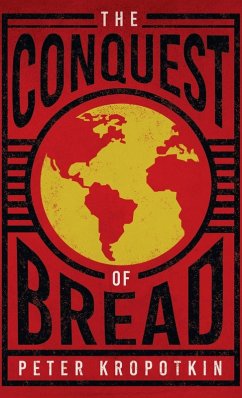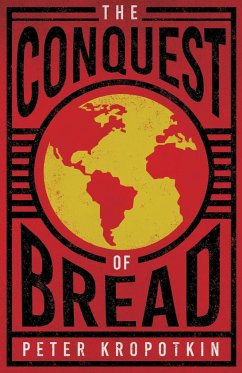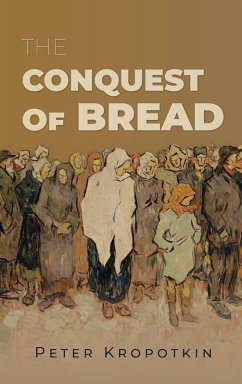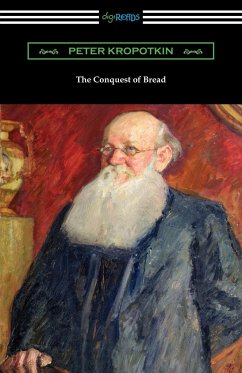
The Conquest of Bread
Versandkostenfrei!
Versandfertig in 1-2 Wochen
12,99 €
inkl. MwSt.

PAYBACK Punkte
6 °P sammeln!
One of the founding Classics of Anarchist literature, Peter Kropotkin’s book is a thoughtful, humane and detailed critique of capitalism, a system which allows a small, rich elite to hold the majority of the population in poverty and servitude, despite there being enough globally to satisfy the needs (and even the luxuries) of everyone. The Conquest of Bread gives a spirited rejoinder to all who believe Anarchism ‘sounds good’ but cannot succeed in practice. Using data from his own time, the former Russian Prince (whose family owned more than 1000 serfs) lays out a detailed account of An...
One of the founding Classics of Anarchist literature, Peter Kropotkin’s book is a thoughtful, humane and detailed critique of capitalism, a system which allows a small, rich elite to hold the majority of the population in poverty and servitude, despite there being enough globally to satisfy the needs (and even the luxuries) of everyone. The Conquest of Bread gives a spirited rejoinder to all who believe Anarchism ‘sounds good’ but cannot succeed in practice. Using data from his own time, the former Russian Prince (whose family owned more than 1000 serfs) lays out a detailed account of Anarchist Society - a fair and equitable social system based upon the concept that, as all things are the common inheritance of Mankind, they should, and can be, held in common. Many of Kropotkin’s concepts are surprisingly contemporary, including a ‘needs’ as opposed to a ‘contributory’ scheme of social care, and food security via a system that sounds suspiciously like present-day Permaculture! A book for all those interested in changing society for the better.












